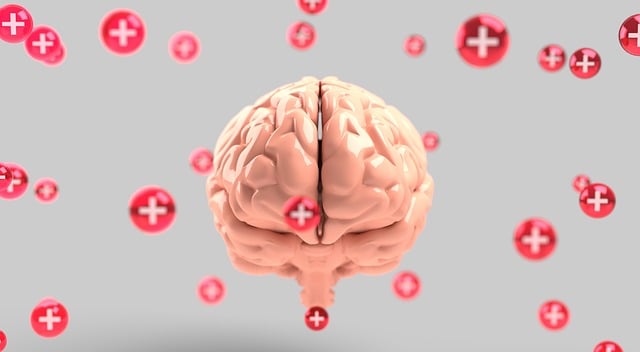Mental illness diagnoses face challenges due to diverse symptoms in conditions like Depression, Anxiety, and Functional Neurological Disorders (FNDs). Lakewood Functional Neurological Disorder Therapy offers a groundbreaking solution. This approach uses advanced brain imaging and comprehensive assessments for accurate diagnoses, especially in FNDs. It prioritizes cultural sensitivity and personalized interventions, enhancing mental wellness. To improve diagnosis accuracy, healthcare providers should integrate evidence-based practices, focus on FNDs, encourage self-care, and emphasize early intervention using techniques like LFND Therapy. This ensures tailored treatments, better long-term outcomes, and improved quality of life for patients.
Mental illness diagnoses, while critical for effective treatment, often face challenges due to complexity and misconceptions. This article explores strategies to enhance diagnosis accuracy, focusing on innovative approaches like Lakewood Functional Neurological Disorder Therapy. We delve into evidence-based practices and emphasize the significance of early intervention and continuous support in optimizing patient outcomes. By addressing current hurdles, this comprehensive overview aims to improve mental health care accessibility and effectiveness.
- Understanding Mental Illness Diagnoses: Current Challenges and Misconceptions
- Lakewood Functional Neurological Disorder Therapy: A Novel Approach to Enhance Diagnosis
- Evidence-Based Practices for Improving Diagnostic Accuracy: A Comprehensive Overview
- The Role of Early Intervention and Ongoing Support in Optimizing Treatment Outcomes
Understanding Mental Illness Diagnoses: Current Challenges and Misconceptions

Mental illness diagnoses often come with challenges and misconceptions that can hinder effective treatment. One significant issue is the complexity of mental health conditions themselves. Mental disorders, such as Depression, Anxiety, or even more intricate conditions like Functional Neurological Disorders (FND), present a wide range of symptoms, varying greatly from person to person. This makes accurate diagnosis a delicate process, especially when many individuals struggle with co-occurring conditions, adding another layer of complexity.
Moreover, the current diagnostic criteria and tools sometimes fall short in capturing the nuances of mental illness. For instance, Lakewood Functional Neurological Disorder Therapy focuses on addressing physical symptoms that may not be immediately associated with psychological distress. Conflict resolution techniques and trauma support services are essential components of treatment for individuals with FND, as they help unravel underlying emotional conflicts and past traumas contributing to their symptoms. By recognizing these challenges and misconceptions, mental health professionals can strive for more precise diagnoses, ultimately leading to better-tailored treatments.
Lakewood Functional Neurological Disorder Therapy: A Novel Approach to Enhance Diagnosis

The Lakewood Functional Neurological Disorder (LFND) Therapy is a novel and innovative approach to enhancing mental illness diagnosis accuracy, particularly for conditions like neurological disorders. This therapy method leverages advanced brain imaging techniques and comprehensive assessments to gain deeper insights into patients’ cognitive and behavioral patterns. By integrating these data with clinical observations, healthcare professionals can make more precise diagnoses, distinguishing between similar symptoms that often characterize various mental health conditions.
This approach prioritizes cultural sensitivity in mental healthcare practice by tailoring interventions to individual patient backgrounds and experiences. Furthermore, LFND Therapy focuses on building confidence among patients during the diagnostic process, fostering an environment of trust and openness. Ultimately, this boosts mental wellness by ensuring that diagnoses are not only accurate but also culturally responsive, leading to more effective treatment plans tailored to each patient’s unique needs.
Evidence-Based Practices for Improving Diagnostic Accuracy: A Comprehensive Overview

Improving mental illness diagnosis accuracy is a multifaceted approach that integrates evidence-based practices and innovative strategies. One such practice gaining traction in the field of neuropsychology is the focus on functional neurological disorders (FNDs), like Lakewood Functional Neurological Disorder Therapy, which emphasizes understanding the interplay between brain function and psychological symptoms. This comprehensive therapy involves a detailed assessment of cognitive, sensory, and motor impairments to develop tailored interventions.
Integrating these practices with burnout prevention strategies for healthcare providers is vital. Overwork and stress can hinder judgment and impact diagnostic accuracy. Encouraging self-care routine development for better mental health, including regular exercise, mindfulness, and adequate sleep, helps maintain optimal cognitive function. Additionally, mood management techniques play a significant role in both the practitioner’s well-being and their ability to make precise diagnoses, ensuring patients receive appropriate care from well-rested and focused healthcare providers.
The Role of Early Intervention and Ongoing Support in Optimizing Treatment Outcomes

Early intervention plays a pivotal role in optimizing treatment outcomes for individuals struggling with mental illness. By identifying and addressing symptoms at their inception, healthcare professionals can significantly alter the trajectory of a person’s condition. This proactive approach, often facilitated by Lakewood Functional Neurological Disorder Therapy, focuses on empowering patients with coping skills development to manage their symptoms effectively. Early intervention not only improves long-term prognoses but also reduces the likelihood of severe relapse or exacerbation.
Ongoing support is equally crucial in ensuring sustained recovery. Regular therapy sessions, coupled with positive thinking strategies, enable individuals to navigate life’s challenges while maintaining mental wellness. Risk assessment for mental health professionals remains a key aspect of this process, as it helps identify potential triggers and vulnerabilities early on. Through comprehensive risk assessments, healthcare providers can tailor interventions to meet the unique needs of each patient, fostering an environment conducive to healthy coping mechanisms and improved quality of life.
Mental illness diagnosis accuracy has long been a complex issue, shrouded by misconceptions and challenges. However, advancements such as the innovative Lakewood Functional Neurological Disorder Therapy offer promising avenues for improvement. By combining novel therapeutic approaches with evidence-based practices, healthcare professionals can enhance diagnostic clarity and optimize treatment outcomes. Early intervention and ongoing support are pivotal in this process, ensuring that individuals receive timely and effective care tailored to their unique needs. Through these collective efforts, the mental health field is poised to navigate the complexities of diagnosis with greater precision and compassion.














